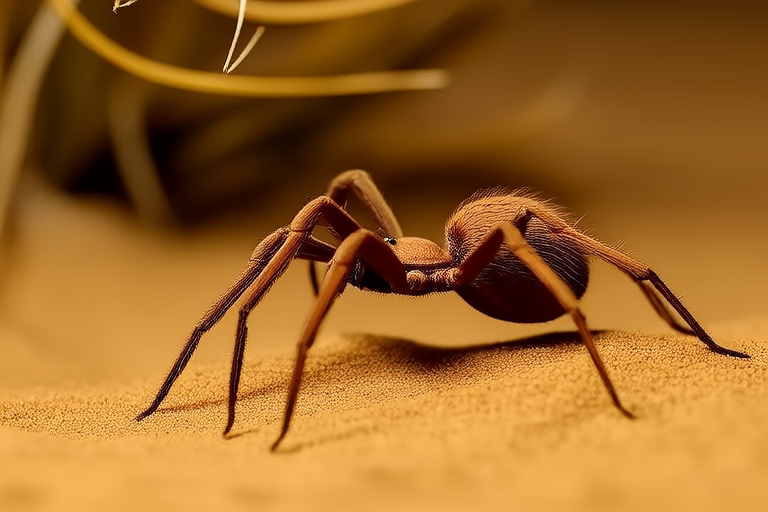Chilean Rose Tarantula: The Ultimate Guide for First-Time Owners
Introduction to the Chilean Rose Tarantula
The Chilean rose tarantula (Grammostola rosea) is one of the most popular species among tarantula enthusiasts due to its docile temperament and manageable size. Native to the arid regions of Chile, these spiders are known for their beautiful coloration, which ranges from a light pink to a deep rose hue. They are relatively easy to care for, making them an excellent choice for first-time tarantula owners.
Natural Habitat
In their natural habitat, Chilean rose tarantulas live in burrows in sandy or rocky areas. These burrows provide protection from predators and harsh weather conditions. The climate in their native region is dry and warm, with temperatures ranging from 70°F to 90°F (21°C to 32°C). Understanding the natural environment helps in setting up a suitable living space for your pet at home.
Ideal Tank Setup
Creating a comfortable and safe environment for your Chilean rose tarantula is crucial. A glass terrarium with a secure lid is recommended. For a single adult tarantula, a 10-gallon tank is sufficient. The substrate should be around 4-6 inches deep, made of coconut fiber or a mix of sand and soil, to allow for burrowing. Decorative rocks, branches, and cork bark can be added to mimic the natural landscape and provide hiding spots. Temperature and humidity levels should be maintained between 75°F and 85°F (24°C to 29°C) and 60-80%, respectively. Use a thermometer and hygrometer to monitor these conditions accurately.
Diet and Feeding Schedules
Chilean rose tarantulas are carnivorous and require a varied diet of insects. Young tarantulas can be fed small crickets, while adults can handle larger prey like dubia roaches. Feed juveniles every 5-7 days and adults once every 1-2 weeks. Always ensure that the prey is appropriately sized; it should not exceed half the width of the spider’s abdomen. Remove uneaten prey after 24 hours to prevent contamination.
Handling Tips
Handling your Chilean rose tarantula should be done carefully and infrequently. These spiders are generally calm but may become stressed when handled. Use a long-handled net to gently scoop them out of their enclosure. Support the spider’s body fully and avoid squeezing or pinching. Always wash your hands before and after handling to prevent transferring oils or chemicals that could harm your pet.
Common Health Issues
Like any other pet, Chilean rose tarantulas can face health issues. Common problems include dehydration, mites, and bacterial infections. Signs of dehydration include a shriveled abdomen, while mites can cause irritation and weight loss. Bacterial infections might lead to lethargy and refusal to eat. Regularly check your tarantula for any unusual behavior or physical changes. If you notice anything concerning, consult a veterinarian specializing in exotic pets.
Selecting the Right Equipment
Investing in quality equipment ensures your tarantula’s well-being. Besides the terrarium and substrate, you’ll need a heat lamp or under-tank heater to maintain appropriate temperature. A water dish should be provided, though they rarely drink from it. A spray bottle can help increase humidity if needed. Regular maintenance tools, such as tongs and a vacuum cleaner designed for pet care, will aid in keeping the enclosure clean and safe.
Maintaining Hygiene
Keeping the tank clean is vital for your tarantula’s health. Spot clean daily by removing uneaten prey and droppings. Replace the substrate completely every few months or whenever it becomes too dirty. Clean the tank and decorations thoroughly with a mild disinfectant solution, ensuring all residues are rinsed away before replacing the substrate. Avoid using strong chemicals that could harm your pet.
Signs of a Healthy Tarantula
A healthy Chilean rose tarantula will exhibit certain behaviors and physical characteristics. They should be active, with a plump abdomen and no visible injuries. Their colors should be vibrant, and they should molt regularly without complications. Proper hydration and nutrition are key indicators of good health. Monitoring these aspects closely helps in identifying potential issues early.
Resources for Further Learning and Community Support
To deepen your knowledge about Chilean rose tarantulas, consider joining online forums and local clubs dedicated to exotic pets. Books and articles on tarantula care offer detailed insights into their biology and husbandry. Engaging with experienced owners provides valuable advice and support. Websites offering educational materials and expert opinions can also be beneficial.
